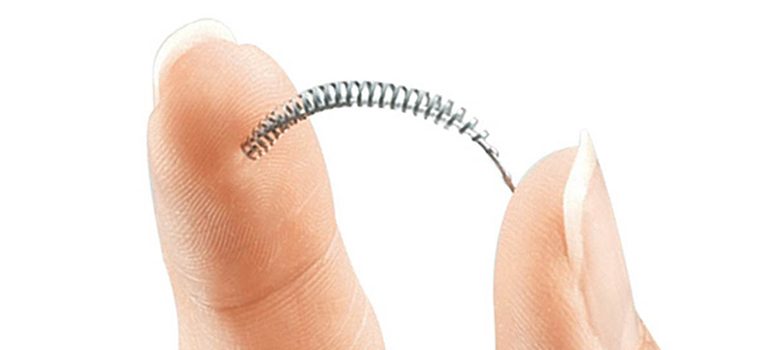Essure, a non-surgical, implantation method of permanent sterilization for women, consists of metal coils that are inserted into the fallopian tubes. Over the course of a few months, scar tissue is expected to form around the device which is meant to prevent sperm from reaching an egg.
Since the device’s approval by the Food and Drug Administration (FDA) in 2002, thousands of women have reported severe complications and many of these women have filed lawsuits against the devices manufacturer, Bayer, as a result. As of mid-2018, there have been around 20,000 documented adverse events as a result of the device, and most of these are self-reported by women and not their physicians.
Each year an average 600,000 women undergo some form of sterilization procedures in an effort to avoid unplanned pregnancies. In New York State, it was reported that almost 30 percent of the women that underwent one form of sterilization chose the Essure birth control device over the course of an eight-year period. “Essure fails every test,” regenerative medical consultant Dr. Katy Moncivais says. “It’s less safe, less effective and more side-effect prone than most other methods of birth control.”
In the summer of 2018, Bayer announced the plan to discontinue sales and implantations the device at the end of the year, several months after the FDA restricted the sale and distribution of the product to women completely informed of the risks of the device.
Although Bayer announced they were halting sales, they stood by the safety and efficacy of the device, which is the only implantation method of sterilization approved by the FDA. The reasons explained in the announcement were that of business reasons such as declining sales in the United States.
Even though the device was pulled from the market just a few weeks ago, Essure has not been sold in foreign markets since 2017. Essure was being banned in other countries for months, and Bayer had been quietly pulling the device off of foreign markets for some time before they decided to remove the device from U.S. markets.
Bayer and the FDA, continue to stand by the benefit-risk profile of the device while its main purpose—sterilization—fails. Since the introduction of the device to the U.S. market, over 2,000 women reported unintended pregnancies while it was implanted.
Though some of these women carried the child healthily to term, most reported ectopic pregnancies, miscarriages, and stillbirths. Aside from this evidence of sterilization failure, researchers also estimate that nearly 10 percent of women could get pregnant within the 10 years after initial implantation of the device.
In 2015, it was estimated that almost 10,000 Essure patients required re-operations as a result of the device. Most commonly reported reasons were tears and perforations of the uterus, fallopian tubes, or other nearby organs, as well as the device traveling into the pelvic cavity and abdomen.
Most women report mild to moderate pain and discomfort immediately following the implantation procedure, but in an initial study of the device, 25 percent of the 518 women involved experienced side effects for over a year after implantation. These side effects were the same that many women report today, such as back pain, depression, abdominal pain, weight fluctuation, pain with sex, headaches, and severe pelvic pain.
In 2016, the FDA stepped in to enforce label changes, a patient decision checklist, and to include a black-box warning on the device for patients to better understand the risks of Essure. A post-market study was introduced to continue gathering data on the benefits and risks of Essure for a span of three years, which was later extended to five years.
Several months later, the FDA restricted sales exclusively to women that reviewed the patient-doctor checklist that acknowledged and accepted the potential risks of the device.
Essure was originally marketed as an easier method of sterilization for women who would like to return to normal activities on the same day. From failing to prevent pregnancy, to impacting the health and safety to patients—Essure is under severe scrutiny. If you or a loved one has been impacted by Essure, contact a medical professional right away.
Darian Carrow is a staff writer at ConsumerSafety.org. She has a background in editorial communications, which she uses to inform consumers of harmful products.
Opinions are the author’s own and do not necessarily reflect those of San Jose Inside. Send op-ed pitches to [email protected].





Seems like every time this type of contraption is tried we end up with the same results, sick and injured women. Nose rings and piercings are bad enough, Put foreign objects into your body is always risky even when it was to save your life and should be a last resort . Please make that choice carefully.
I have one of those things! When I’m done using my ball point pen, I’ll show it to you.
And the article says that thing caused “at least 20,000 documented painful experiences.” I wonder how they quantified those ‘experiences’?
> From failing to prevent pregnancy, to impacting the health and safety to patients—Essure is under severe scrutiny.
Sounds like just letting nature take its course, getting pregnant, and having children would be safer and healthier for all concerned.
Whose crazy idea was it to stick pointy twisted metal parts in your body cavities anyway?